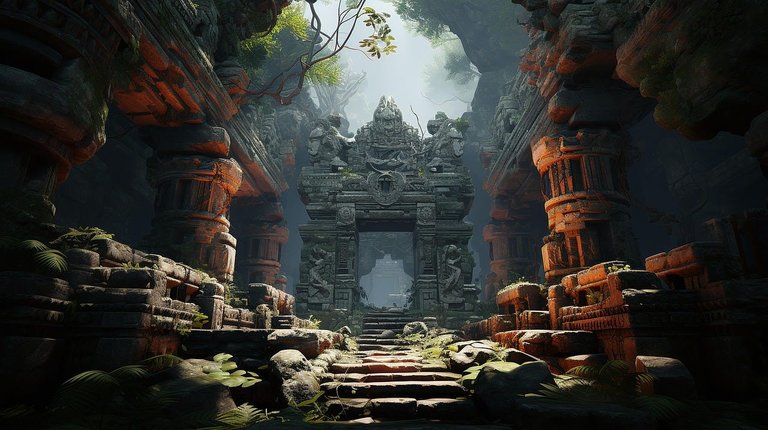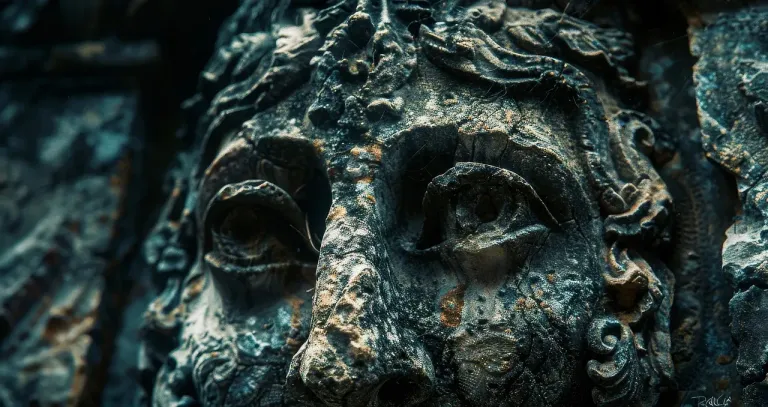The Cursed City of the Hittites

A Forgotten Empire's Legacy
High in the heart of Anatolia, nestled among the rugged hills of modern-day Turkey, lies the ancient city of Hattusa—a city that once thrived as the capital of the Hittite Empire. Known for its monumental walls, intricate temples, and grand palaces, Hattusa was a vibrant hub of culture, politics, and power. But today, it is a ruin.
The city’s rise to prominence as the center of a powerful empire and its equally abrupt fall into abandonment has led to whispers of a curse—a dark force that not only wiped Hattusa off the map but also left behind eerie remnants of its final days. Some say the downfall of Hattusa was not just the result of war or natural disaster, but something far more supernatural. This is the story of Hattusa: the cursed city of the Hittites.
The Rise of Hattusa: An Empire's Heartbeat
The Hittite Empire, one of the great powers of the ancient Near East, flourished between 1600 and 1200 BCE. Situated at the crossroads of trade and warfare, the Hittites were strategic in their expansion and innovative in their use of chariots, iron weapons, and diplomacy. Their empire stretched from Anatolia to Mesopotamia, and Hattusa was the crown jewel of this vast realm.
Hattusa, located near the modern village of Boğazkale, was chosen as the capital by King Hattusili I in the 17th century BCE. The city's most striking feature was its massive defensive walls, which stretched over 6 kilometers, designed to protect the city from both external invaders and internal strife. The city's strategic location atop a series of hills made it nearly impenetrable, and its architecture displayed a sense of grandeur and wealth that reflected its status as the heart of an empire.
But it wasn't just the physical fortifications that made Hattusa unique. The city was also home to temples, palaces, and royal archives. Among the most important discoveries made at Hattusa were the thousands of clay tablets that have provided invaluable insights into Hittite law, religion, and diplomacy. Despite its splendor, the city was always vulnerable to the shifting tides of power, and in its final years, Hattusa would fall victim to forces that many believed were more than just human.
Curse: Shadows Over Hattusa
By the end of the 13th century BCE, the Hittite Empire began to crumble. The reasons for its fall are still debated by scholars, but most agree that a combination of factors—including internal strife, invasions by the Sea Peoples, and a weakening of the royal lineage—led to the collapse of the empire. However, some say there was a darker, more supernatural explanation: a curse.
The story of the curse of Hattusa is steeped in myth and legend. Ancient texts, some written on the very tablets discovered at the site, suggest that the Hittites themselves believed that the gods had turned against them. The city’s destruction was seen not as an unfortunate consequence of warfare, but as the result of divine wrath.
One of the most compelling pieces of evidence for this belief comes from a tablet known as the “Curse of Hattusa,” which was found among the ruins of the city’s royal archives. The tablet describes the dire consequences that would befall anyone who dared to desecrate the city’s sacred spaces or fail to uphold the will of the gods. The curse was said to extend not only to those who betrayed the city but also to future generations.
According to legend, after the fall of the Hittite Empire, Hattusa was abandoned, and a series of natural disasters, including fires, droughts, and earthquakes, ravaged the region. These calamities were seen as punishments from the gods, designed to ensure that the city would never be rebuilt.
But even more haunting is the notion that the curse was not just a warning to the Hittites but a warning to anyone who sought to uncover the secrets of Hattusa. Archaeologists and explorers who have attempted to unearth the lost city in modern times have reported strange occurrences: inexplicable accidents, illnesses, and an overwhelming sense of dread that seems to hang over the ruins.
The Fall of Hattusa: Destruction and Abandonment
The final days of Hattusa are shrouded in mystery. The city, once a thriving metropolis, suddenly came to a standstill. Archaeological evidence suggests that Hattusa was systematically abandoned, with no clear indication of why. Buildings were left unfinished, and the city’s grand palaces and temples were destroyed. The meticulous record-keeping of the Hittites, which had once been their pride, ceased abruptly.
Many historians believe that the collapse of the Hittite Empire and the fall of Hattusa were the result of external pressures, most notably the invasion of the Sea Peoples, a mysterious group of marauders who wreaked havoc on many ancient civilizations. The Hittites, caught during these invasions, were unable to defend their capital.
However, the timing of Hattusa’s fall has led some to believe in a more mystical explanation. The city’s abandonment is seen as a sign that the gods had delivered their final judgment. No more Hittites would walk the city’s streets; the walls would stand silent, waiting for eternity.
The Legacy: A Cursed City Still Waiting
Today, the ruins of Hattusa stand as a silent reminder of a once-great civilization. The walls, although weathered by time, still loom large over the surrounding landscape. Visitors are drawn to the site not only for its historical significance but also for the eerie sense of mystery that surrounds it.
Despite its abandonment and the passing of thousands of years, Hattusa’s legend lives on. The curse that some believe still hangs over the city’s ruins has inspired numerous theories and myths, some claiming that the gods still watch over the site, ensuring that no one will ever truly uncover all its secrets. Archaeologists continue to study the ruins of Hattusa, and discoveries are made regularly, furthering our understanding of the Hittite Empire. Yet, the city’s true story—what led to its rise, its fall, and its ultimate abandonment—remains a puzzle, wrapped in myth and legend.
Could the curse of Hattusa be real? Or is it simply the product of an ancient civilization’s fear of the unknown? Whatever the truth may be, one thing is certain: the city of Hattusa, both in history and in the minds of those who study it, will never be forgotten. The curse lingers, a reminder of the fragility of even the greatest empires and the mysteries that lie hidden beneath the earth.
Posted by Waivio guest: @waivio_cosmicsecrets
